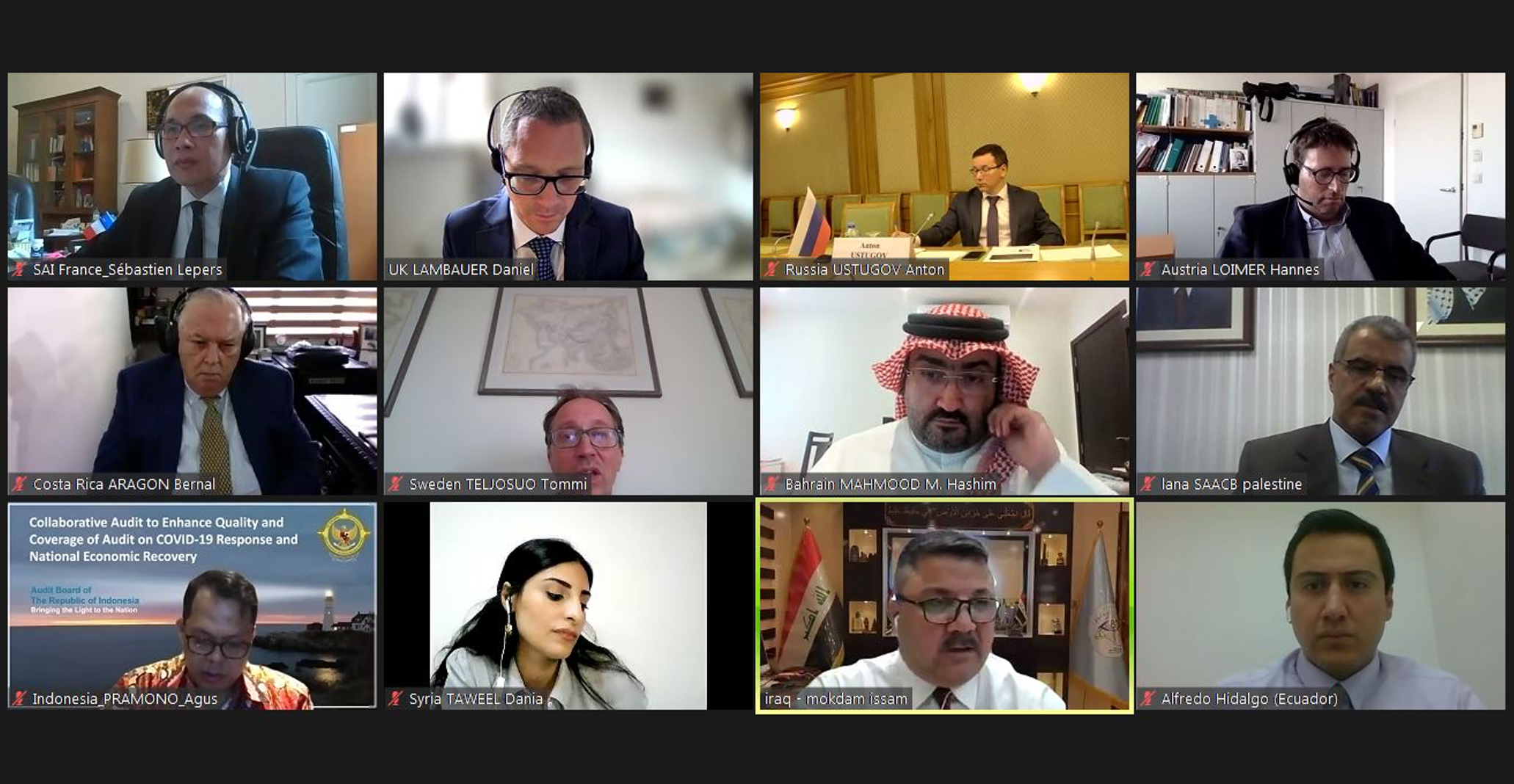
The Accounts Chamber of the Russian Federation took part in the 25th UN/INTOSAI Symposium
The 25th UN/INTOSAI Symposium was held from 28 to 30 June 2021. The event for the first time in its history was in the online format and gathered about 300 participants.
The event was opened by welcoming addresses of the Chairman of the Accounts Chamber of the Russian Federation, the Chairman of INTOSAI Aleksei Kudrin, the President of the Austrian Court of Accounts, the Secretary General of INTOSAI Margit Kraker and the Deputy Secretary General of the United Nations, Liu Zhenmin.
The symposium lasted for 3 days during which the following topics were discussed:
- Impact of COVID-19 on SAIs’ organizational capacities, working methods and processes;
- Experiences and good practices in auditing the COVID-19 responses and recovery plans;
- Innovative approaches to enhancing the transparency of and accountability for the COVID-19 responses;
- Resilient accountability systems and institutions in the aftermath of COVID-19.
The symposium gathered together INTOSAI-members, as well as the representatives of the World Bank, the International Budget Partnership, the INTOSAI Development Initiative and UNODC.
Anton Ustugov, the Deputy Director of the Department for Health and Sports Audit, participated on behalf of the Accounts Chamber of the Russian Federation with a presentation "Experience in auditing incentive payments to medical workers during a pandemic". During his report, he spoke about the implementation of control measures regarding the verification of incentive payments to medical workers, shared plans for conducting control measures to verify the implementation of the resolutions of the Government of the Russian Federation on the execution of the budget of the Mandatory Medical Insurance Fund. He also drew attention of the participants to the need of the monitoring of the development of the situation and the set of measures taken to combat the new coronavirus infection. As an example, he indicated the newsletter of the Accounts Chamber of Russian Federation “COVID-19 in Russia and in the world”.
Generally, the speakers noted that the COVID-19 pandemic made serious impact to the work of SAIs. Some of them were technically ready for such a situation and continued their mandates during the lockdown, for example, the SAIs of Argentina, Estonia, Hungary, Kenya, the USA. Some SAIs have well-established electronic document management systems and various portals for secure information exchange. At the same time, some of the participants noted a low readiness to conduct remote audits. The major problems were the lack of Internet and technical means for remote work, the lack of a regulatory framework for conducting a remote audit.
Special attention of the speakers and participants of the symposium was paid to the topic of openness of the work of governments and interaction with civil society. It was stressed that during the pandemic, the demand for providing open information about the activities of the government has significantly increased. The main goal of SAI is to publish open data on the results of audit of the implementation of state response measures to pandemics. Also, some of the supreme audit institutions conducted online seminars for citizens (e.g. Chile, Kenya, South Africa), raising their awareness of the work of the governments. A number of SAIs conducted audits at the request of the society or parliaments and governments ().
The topic of anti-corruption measures also received much attention. A risk of corruption is especially high during the pandemic and affects all sectors of the state's activities. The role of SAI is to become a guarantor of independence, transparency and good governance.
In addition, all participants of the event repeatedly stressed the high role of international exchange of experience, especially during the pandemic. Thus, the representative of the INTOSAI Development Initiative, Archana Shirsat spoke about the program for conducting joint audits during the pandemic. The US representative Mike Hix named the initiative to provide INTOSAI grants to those SAIs, whose level of technological development is rather low. The representative of the World Bank, Robert Soum spoke about the support programs that the regional representatives of the Bank provide to their partners. Claire Schouten, a representative of the International Budget Partnership, presented the Review of Open Budget Survey. She noted the special role of the interaction between the SAIs and governments.
A number of INTOSAI initiatives to respond to the COVID-19 pandemic were mentioned, in particular, the creation of a special group under the auspices of the INTOSAI SCEI, headed by the Accounts Chamber of the Russian Federation.
As for further development and recovery plans, it was noted that the role of the SAI is one of the most important and significant. The supreme audit institutions should be flexible and respond to challenges in real time to be able to anticipate and predict the situation. SAIs should become partners and consultants to the governments.
Following the results of the symposium, the participants discussed the draft conclusions and recommendations, which summarized the result of all the topics considered at the symposium. One of the most significant points of the recommendations is to support the establishment of the INTOSAI Working Group on Health Care (by the Recommendations of the INTOSAI SCEI under the auspice of the Accounts Chamber of Russia).




